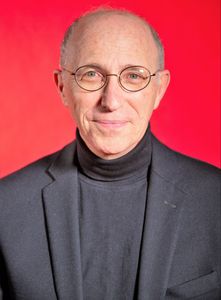Storella Cites Value of Allies and International Engagement in LA Radio Interview
 Professor of the Practice Ambassador Mark Storella underlined the importance of America’s alliances and multilateral engagement for the safety of the American people in an interview with Nana Gyamfi on KPFK radio in Los Angeles.
Professor of the Practice Ambassador Mark Storella underlined the importance of America’s alliances and multilateral engagement for the safety of the American people in an interview with Nana Gyamfi on KPFK radio in Los Angeles.
Storella explained how our NATO alliance has kept the peace in Europe for 76 years; however, the alliance is now on shaky ground as President Trump undermines trust in America’s willingness to uphold its alliance commitments to defend NATO members. NATO’s Article 5 – that we will treat an attack on one as an attack on all – has been invoked only once, when our allies came to our aid to eliminate Al Qaeda from Afghanistan. Storella said it would be “unilateral disarmament” for the U.S. to weaken NATO by siding with Russia in the War in Ukraine.
While it is right to seek a negotiated solution to the war, it is an error to pressure the weakest party, Ukraine, as Trump did in the February 28 Oval Office meeting, while making preemptive concessions to Russia and Vladimir Putin.
Storella also cited the dangers of the U.S. silencing itself on human rights, as demonstrated by our withdrawal from the Human Rights Council. Doing so leaves the field open to countries like China that seek to redefine human rights as belonging to states and not to people.
Gyamfi also asked about the decision to leave WHO at a time when COVID has demonstrated the necessity of international public health cooperation. Storella said that global health is a global challenge that requires a global response. COVID taught that no country can safely erect borders against pathogens. The U.S. benefits tremendously through our cooperation with WHO which serves as a global surveillance network. Through our modest contributions – just 15% of the WHO budget – the U.S. gains outsized influence in the development of global health policy.
Trump’s decision to withdraw our CDC and other agency technical support from WHO is particularly shortsighted. Our unparalleled technical skill makes WHO more effective in protecting our people. Only 20% of our support for WHO is made up of mandatory dues. The rest – 80% — is made up of voluntary contributions where we say how much we will give and what it will be spent on. If we wanted to argue with WHO over policies or reforms, we had tremendous leverage without leaving the organization. Now we have lost that, putting the American people at greater risk.
You can listen here to the full March 5th episode of Conversations on the Way: The Asafo Edition: https://archive.kpfk.org/